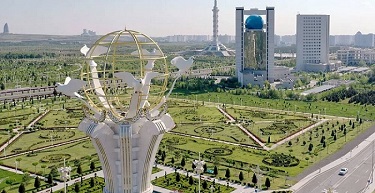Tariq Saeedi
Turkmenistan responded swiftly, on real-time basis – as the commercial flights from several airlines were in the air and the airspace across a wide corridor with Iran in its centre was closed suddenly, Turkmenistan allowed the airplanes to land safely at Ashgabat.
The decision took just a few minutes because the permanent neutrality of Turkmenistan, a living organism, gives only one choice in such situations – humanity first.
In addition to allowing the airplanes to land and providing the passengers and crew with traditional Turkmen hospitality, the country keeps its border points with Iran open, 24/7, to allow the foreign nationals leaving Iran to use the alternative routes to return home.
The UN system in Turkmenistan is providing complete cooperation and support to the government of Turkmenistan.
For now, the situation is within the means and capacity of Turkmenistan.
However, there is the need to be prepared for any sudden and unexpected development.
In order to visualize as to what may lie ahead in the Iran-Israel conflict, we asked AI to create the best case scenario, the worst case scenario and the mostly likely scenario. For this we used the opinion of experts from the Atlantic Council, RAND Corporation, International Institute for Strategic Studies (IISS), the International Atomic Energy Agency (IAEA), the Middle East Institute, as well as comments from conflict resolution specialists and nonproliferation experts.
We will not mention that worst case scenario because we really hope the things would not travel in that direction.
For the best case scenario, and the most likely scenario we will briefly mention some points:
- The best case scenario has a likelihood of 30% while the most likely scenario has the likelihood of 55%.
- In the most likely scenario, the conflict may last 2-4 weeks unless some engineered intervention is introduced, which may prolong it.
- The oil prices may touch $ 85 per barrel.
- The resulting peace could be fragile yet tenable because the populations in both the countries would vocally call for peace.
We have mentioned just a few of the possibilities.
The prolonged closure of the Iranian airspace would make the air travel cumbersome and expensive in several directions.
The denial of the Iranian land space would disrupt the trade and supply chain cycles, causing hardship to a number of regions including the Middle East and Central Asia.
With the provision of some face facing devices and the robust diplomatic activity, the conflict can actually be brought to a halt (or, to a snail’s pace) within a few days.
The collective question is: Will the world community be able to act in unison?
Turkmenistan has demonstrated and continues to demonstrate that its neutrality is responsive and dependable.
The world community needs to act swiftly to ensure that Turkmenistan is not burdened any further. /// nCa, 19 June 2025
